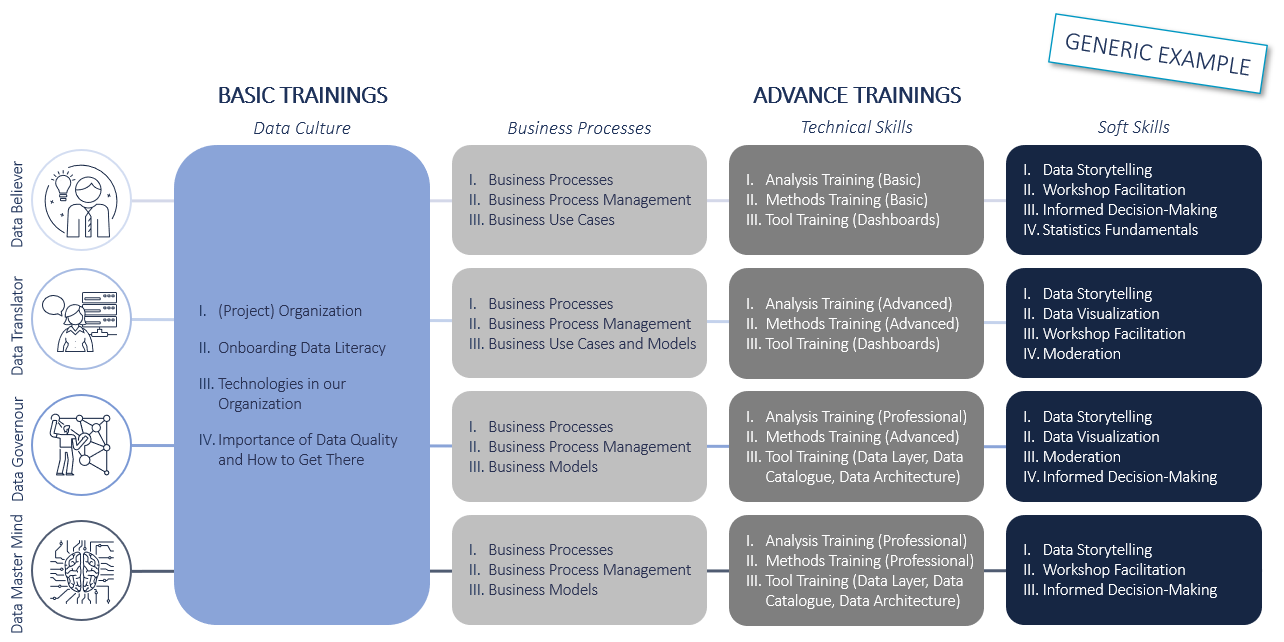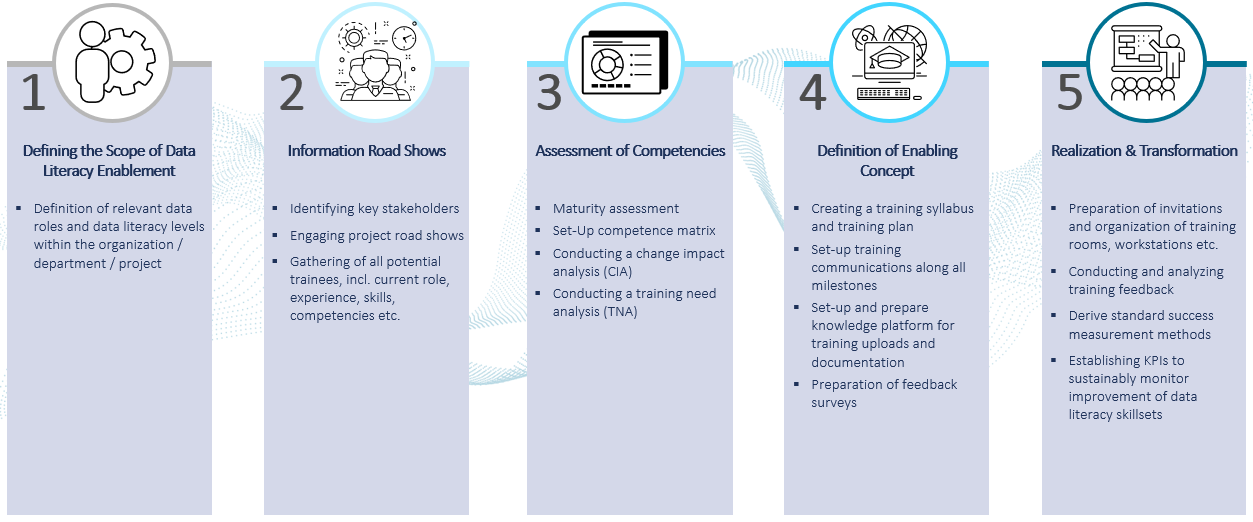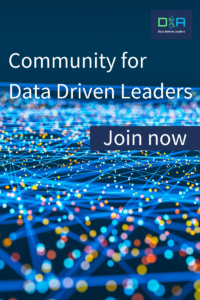We now live in a world that is fueled by data. There are quite a lot of organizations or companies that have people with the skills to extract insights from this data and to use it. Thus, data literacy is becoming one of the most important skills today. Making data-driven decisions and creating value while doing so, allows an organization to maneuver safely through fast moving times.
During many data management projects, we often realize that either people have only a vague idea of what data literacy is or that those skills need to be improved in their organization – if you are part of the first group, you should jump to our former article before continuing to read: Data Literacy: Changing the Game in Companies and Beyond. If you see yourself in the second group, this article will support you to get some inspiration on how to improve data literacy skills within your organization – and there are lots of different ways to raise visibility on that topic.
Choosing a Fitting Approach to Establish Data Literacy
You can obviously simply try to hire data scientists from the outside world to “buy-in” data literate employees rapidly. The problem occurring with this approach is: firstly, they are very expensive and scarce, and secondly, a bottleneck where all the analysis needs to go through will probably be created. Another (and more sustainable) way to improve an organization’s data literacy is to build up those skills inhouse slowly but steadily – to give everyone in your organization the ability to use data by themselves according to their requirements. Not everyone needs to be an expert but should be able to make an informed decision in their individual role.
Potential Obstacles on the Way
However, there are a few barriers to all this that need to be addressed. Usually we come across mindsets like: “We have the data and the technology in place to give people access to it, this is all we need!” or “Gaining data literacy skills is part of everyone’s job, we should acquire them by simply doing our jobs.” What is often overlooked is that an organization’s culture can be an important inhibitor. A data culture is required that understands the importance and the basic implication of bad data, that enables people to use the data, how to use it and to come to conclusions. If you do not have the right data culture, engaging in developing data literacy skills can be tough. Thus, organizations need to build this trust and need to delegate authority to people, so they can use the data correctly and make valuable decisions.

Another barrier is that we then need to have the right data in the right quality. This is where trust comes in once again: people in the organization need to trust that the provided data is of the right quality. Otherwise, analyses derived upon “shitty” data will remain “shitty” as well. Understanding the importance of data quality, measuring relevant KPIs, conducting data cleansing and maintaining the defined “golden standards” marks the base for a data-driven organization.
Having nudged this process, it is essential to think about the right technology. On one hand, tools should be in place, which provide dashboards or data exploration functions with a proper front-end. Those will support different roles to map, visualize, understand, slice, and dice the data. On the other hand, the technology in the background to store the data nicely and to process it is mandatory. Within our projects, we often find data sitting in silos, meaning that companies might have a highly performative HR data system and something similar for marketing, something similar for operations and so on and so forth. To evolve to a data-literate organization, an integrated data layer and efficient IT interfaces cannot be circumvented.
Road Map to a Data-Literate Organization
As briefly touched on our previous article Data Literacy: Changing the Game in Companies and Beyond, we recommend to build-up a data-oriented organization and to create specific learning paths for each role. Since data culture can be identified as one of the biggest obstacles along the way, any training and enabling sessions should be mandatory and continuously followed-up upon to design a cultural change road map. Mandatory topics like onboarding to the (project) organization, onboarding to the topic of data literacy, (existing) technologies in your organization and the importance of data quality are essential basics for a functioning data-driven organization.

A cultural change road map can be drafted and scaled up from small projects to your whole organization and to define that scope lays the basis for all other steps on the way.

Having identified the relevant scope, it all comes back to people – searching for people within the organization who are key stakeholders in driving such a transformation. For instance, this can be fulfilled by setting up information road shows, envisioning the benefit and need for the organization and finally igniting the spark to become data literate.
Carrying on that spark through deriving substantial assessments on maturity, competencies, and training needs along the way to the final set-up of an enabling concept and the realization is an invisible but essential success factor, which should not be underestimated.
We know that there are currently many hot topics in the field of data and analytics, and that many of them are often just empty phrases without substance behind it. But if we have now ignited a spark about data literacy as a foundation: We are thrilled to support your vision and to ensure the spark to grow until your organization is not only data-driven, but value-driven.
Join our community for data-driven leaders.

